A lawyer for Ron DeSantis revealed the real motive behind one of Florida's most controversial laws
Ron DeSantis claimed he wanted to make sure learning about systematic racism was a choice. He actually wants to make sure no one learns about systemic racism at all.
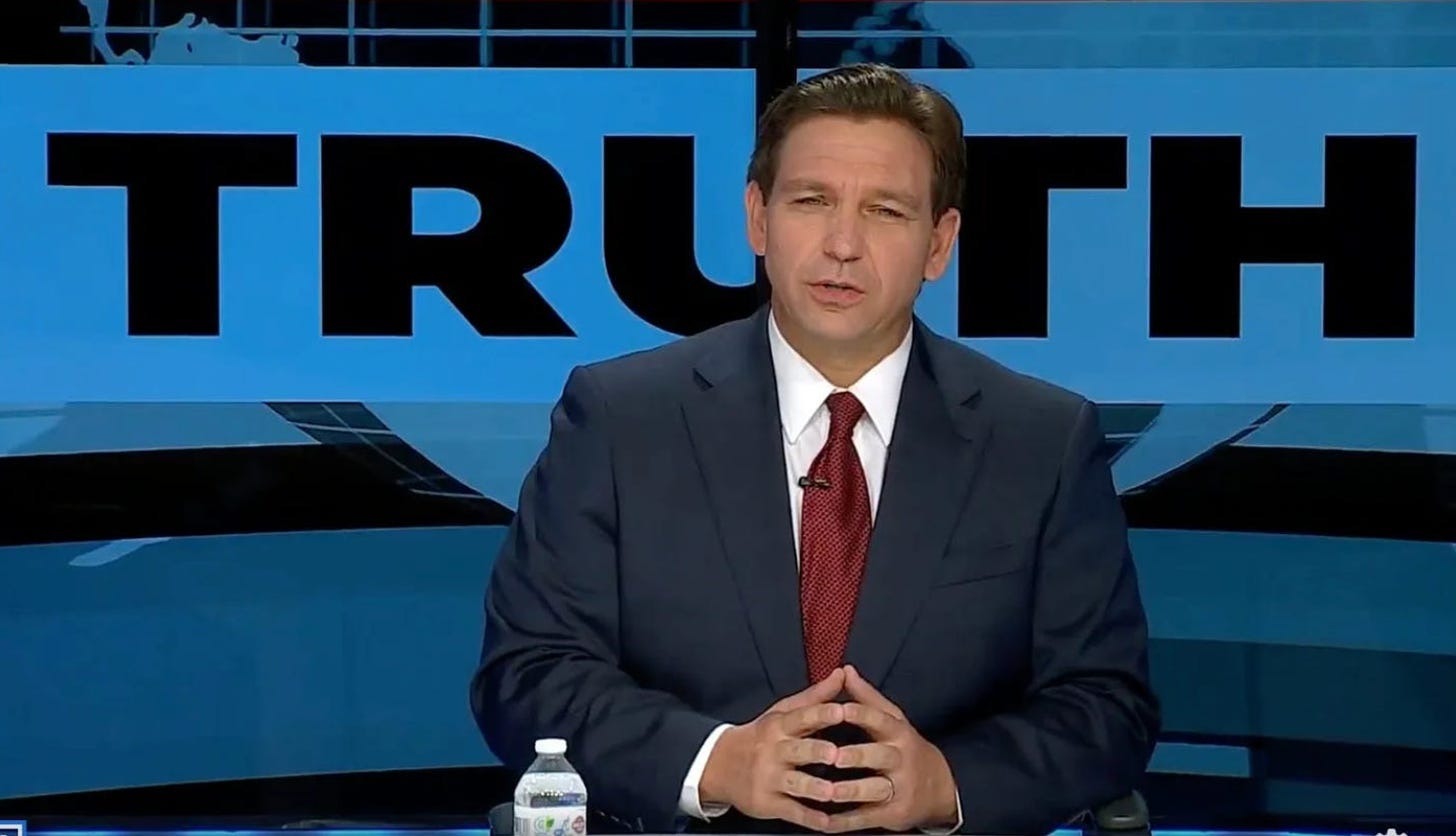
This is Seeking Rents, a newsletter and podcast devoted to producing original journalism — and lifting up the journalism of others — that examines the many ways that businesses influence public policy across Florida, written by Jason Garcia. Seeking Rents is free to all. But please consider a voluntary paid subscription, if you can afford one, to help support our work.
A lawyer for Ron DeSantis just gave away the game.
It happened last week, inside the Elbert P. Tuttle U.S. Court of Appeal Building in Atlanta, where the DeSantis administration is trying to defend one of the Florida governor’s most cherished achievements: The so-called “Stop WOKE Act.”
You may remember this law, because it got a lot of attention last year, when DeSantis personally pushed it through the Florida Legislature. Branded by DeSantis as the “Stop Wrongs to Our Kids and Employees Act,” it sets restrictions on how public schools and private employers can talk to their students or employees about concepts like systemic racism, unconscious bias, and male privilege.
The specific part of the law being challenged in this case makes it illegal under Florida’s Civil Rights Act for a business to require its employees go through training programs that promote certain ideas that the government of Florida has deemed “repugnant” — like the idea that people develop unconscious prejudices over time that can lead them to engage in unintentionally racist or sexist actions.
DeSantis and other supporters of the Stop WOKE Act have always said the new law is about protecting individual rights — specifically, the right of someone not to be forced to listen to a discussion about something like systemic racism, and the right to make sure their kids don’t have to hear about it, either.
The Florida Legislature literally named the law, “An act relating to individual freedom.” And when DeSantis signed it in April 2022, he said, “We believe an important component of freedom in the state of Florida is the freedom from having oppressive ideologies imposed upon you without your consent.”

Now, the United States Supreme Court says that corporations have free speech rights just like living-and-breathing people do. Which means that the Stop WOKE Act infringes on the First Amendment. And it does so in a particularly dangerous way — because it targets *what* a company says, rather than something content-neutral, like where or when a company speaks.
Think about it this way: Under the Stop WOKE Act, a company cannot make its employees go to a training session that teaches everyone to become self-aware of their own unconscious biases — at least not without risking a state investigation and a civil lawsuit. But a company is free to make its employees attend a training session that claims the entire notion of unconscious bias is bullshit.
This doesn’t mean the law is automatically unconstitutional. But it does mean that, in order for the law to *be* constitutional, the state of Florida must demonstrate a couple of things.
First, it must show that the law is necessary to accomplish some compelling public interest. And second, it must show that the law accomplishes that interest in the least restrictive, or most narrowly tailored, way possible.
A trial court judge has already ruled that the state of Florida is likely to fail this test and issued an injunction preventing the DeSantis administration from enforcing the employer-training provisions of the Stop WOKE Act. But DeSantis has appealed the ruling to the 11thCircuit Court of Appeal.
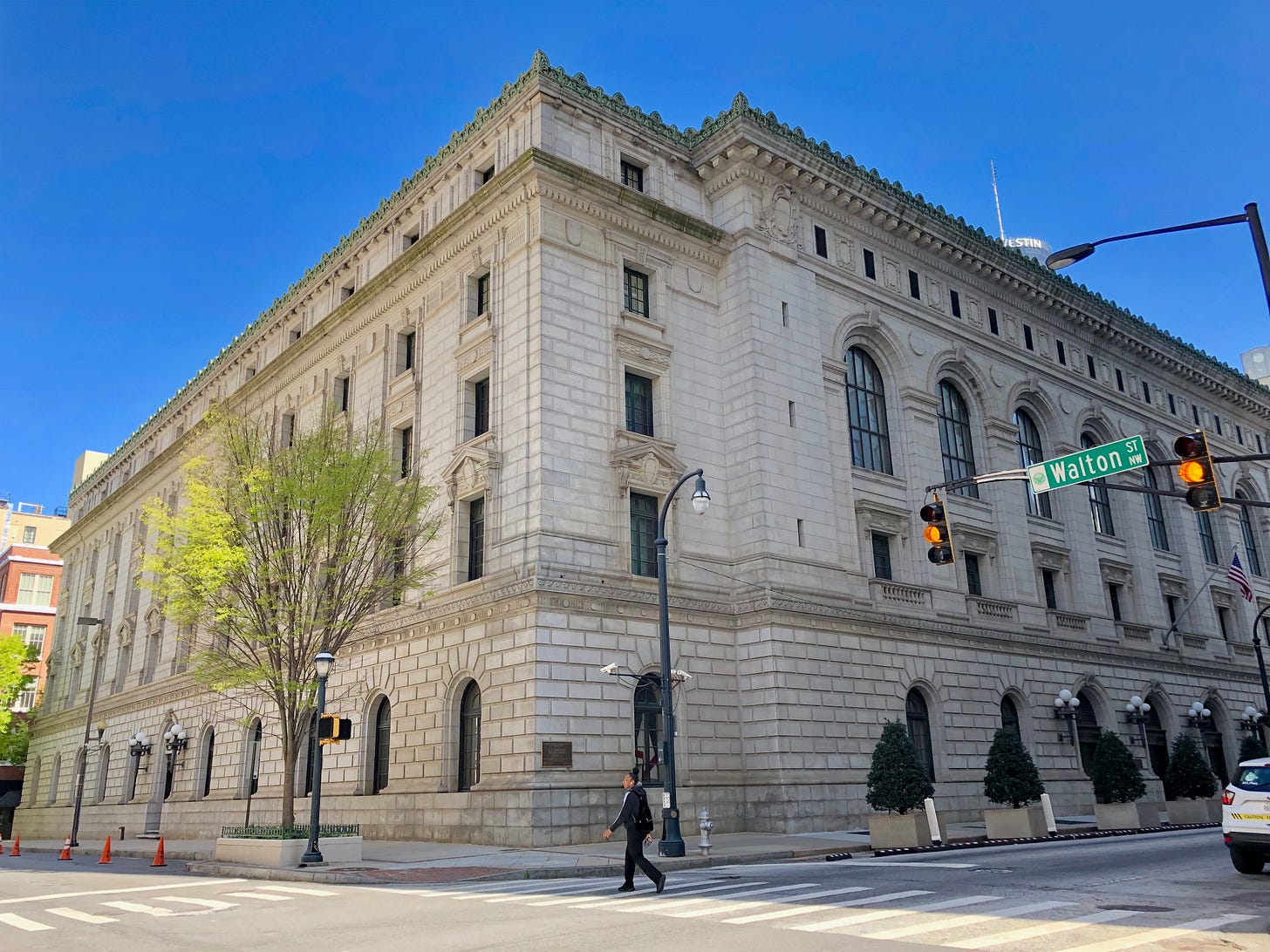
I say all this in order to set the scene for what happened last week inside that courtroom in Atlanta, where the 11th Circuit held oral arguments on the case.
Late in the hearing, one of the three judges presiding over the appeal — Judge Andrew Brasher, a Donald Trump appointee — began to press DeSantis’ lawyer on whether the Stop WOKE Act really is the least restrictive way to achieve the state’s goal of — as DeSantis himself said when he signed the law — saving people from having ideas “imposed” upon them “without their consent.”
Here’s the full exchange. It begins with DeSantis attorney, John Ohlendorf, restating the purpose of the new law:
Ohlendorf: And here, your honors, the interest that the state is driving at just is requiring attendance at workplace trainings where these ideas are inculcated. So I can’t think of any more tailored approach to addressing that interest than what the state of Florida did.
Brasher: Well, I mean, here’s just a hypothetical: Perhaps Florida could have passed a law that gave an employee the right to sue if they suffered, I don’t know, mental or emotional distress in light of being required to attend a presentation like this. What about that as a more narrowly tailored option?
Ohlendorf: So I don’t think so, Judge Brasher. And I think this idea of whether the speech has caused some kind of mental distress is kind of a fiction created by the plaintiffs. There’s no indication that that is what the state was aiming at here. The state, I think, has an interest in protecting people from racist and offensive speech even if they would, misguidedly, welcome it. Now, here —
Brasher: Really? Really? That’s interesting. So the state has an interest in protecting me from hearing things that I want to hear?
Ohlendorf: I think so, your honor. I don’t see why whether the employee welcomes hearing that they are a morally inferior race goes to the state’s interest.
Look carefully at what just happened there. DeSantis’ lawyer initially claimed that the state of Florida was simply trying to stop companies from making their employees go through trainings espousing ideas that Ron DeSantis and the Republican-controlled Florida Legislature find offensive.
But then — when the judge points out a narrower way to accomplish that — the DeSantis lawyer acknowledges the real goal: To stop these kind of trainings entirely.
In other words, Ron DeSantis isn’t trying to stop companies from talking about systemic racism to individual employees who don’t want to hear it. He’s trying to stop companies from talking about systemic racism to any employees at all.
This confession seemed to stun the judges. Another one on the panel — Judge Britt Grant, who, like Brasher, is a Trump appointee — jumped in to ask Ohlendorf about a landmark Supreme Court ruling from the 1970s that permitted Nazis to hold a public rally in a village where a large number of Holocaust survivors lived.
Ohlendorf stammered for a moment and then went dead silent for a full 10 seconds while he tried to think of an answer. You can listen to the entire exchange here:
But while the admission may have caught those judges off guard, the fact is that using state power to silence disfavored speech has been a hallmark of Ron DeSantis’ time in Tallahassee — and a likely preview of what he would do in Washington, D.C., too.
In DeSantis’ five years as Florida governor, he’s signed laws giving police more power to punish peaceful protestors while protecting violent vigilantes, enabling fringe activists to get books removed from school libraries, and clamping down on discussions of LGBTQ+ issues in classrooms. He put people in charge of the public New College of Florida — including at least one who worked on the Stop WOKE Act — who just voted to eliminate the school’s gender studies major.
And when a major employer — the Walt Disney Co. — bent to pressure from its own employees and spoke out against just one of those new laws, DeSantis retaliated by having the Legislature pass a bill giving him control of the government district that oversees Walt Disney World’s property in central Florida. “Go woke, go broke,” DeSantis’ official spokesperson boasted.
You may recall that earlier this year the DeSantis administration refused to let Florida high schools offer a new Advanced Placement African American Studies course created by the College Board. The Governor’s Office called it a “vehicle for a political agenda.”
Well, the Miami Herald recently reviewed the state’s internal commentary on the course, which reveal what exactly the DeSantis administration was upset about.
The records showed, for instance, that DeSantis education staffers objected to one lesson teaching students about how Europeans benefitted from trading enslaved people and the materials they produced. They also opposed another lesson exploring how slavery undermined the ability of many Black people to build wealth across generations — because enslaved people weren’t paid wages they could save or pass down to descendants and had no legal right to own or accumulate property.
DeSantis staffers didn’t want students learning that lesson partly because it “may be be promoting the critical race theory idea of reparations,” according to the Herald.
DeSantis hasn’t just tried to silence speech he doesn’t like, either. He’s also used his position to protect — and in some cases even compel — speech he supports.
He signed one law meant to stop social media companies from suspending the accounts of politicians who promote violence. He signed another law that forces unions representing public-sector workers to distribute anti-union propaganda. He signed a third law that prevents healthcare companies and licensing boards from disciplining doctors who refuse to provide healthcare services like contraception or vaccinations.
His new leadership at New College has even lowered admission standards — in order to increase male enrollment.
A common theme across a lot of these laws and policies is that they try to control what Floridians say, hear or learn about groups of people who have been historically disenfranchised in America — like Black people, women and LGBTQ+ people.
But why would controlling that speech be so important?
Well, I would argue that the more people that learn about issues like systemic racism, unconscious bias and male privilege, the more people that may be willing to support policies that try to undo some of the resulting harms — harms that help maintain the power, wealth and privilege of a few.
Remember: One of the reasons the DeSantis administration didn’t want Florida high school students learning about the long-term wealth impacts of slavery was that it might lead to support for reparations.
And the truth is, these impacts are everywhere.
Consider unemployment insurance. This is one of the nation’s most important safety nets — one that protects workers who lose their job through no fault of their own from having their entire wealth wiped out.
It also initially excluded most Black workers. That’s because when Congress first created the unemployment system in the 1930s, federal politicians cut agricultural and domestic workers out of it. And roughly two-thirds of all Black employees at the time were agricultural or domestic workers. (The exclusion also disproportionately hurt female workers, too.)
Unemployment insurance laws were eventually expanded to include agricultural and domestic employees — though only after an entire generation of workers missed out on this wealth protection. But many states, particularly in the U.S. South, have since cut unemployment benefits and imposed new barriers to obtaining them.
Florida is among the worst offenders: The state now provides its workers with some of the poorest unemployment support in the nation.
And here’s another example I learned about from reading the work of Dorothy Brown, a professor of tax law at Georgetown University: When a white couple gets married in the United States, they usually get a tax cut. But when a Black couple gets married in the United States, they’re more likely to get a tax increase.
Why? Because the U.S. tax code favors households with one primary breadwinner over households with two spouses earning roughly equal incomes. And a greater proportion of married Black couples are in two-salary homes — partly because Black men and women face more discrimination in the labor market and more often must have two salaries to reach a middle-class standard of living.
One study of black and white families over a 25-year period between 1984 and 2009 found that marriage increased white wealth by $75,000. But marriage did nothing for Black wealth.
This is the direct result of policymaking that has been driven by the needs of white people — particularly white men — and that has failed to consider the disparate impacts on others who haven’t had the same historical advantages. The way the United States taxes married couples is the legacy of a rich white dude from Seattle who was dodging taxes by assigning half of his income to his stay-at-home wife. (That was for tax purposes only, of course; he didn’t actually give his wife control of half the household money.)
Brown recently wrote a book called “The Whiteness of Wealth,” which takes a deep dive into racism in U.S. tax policy.
It’s the sort of book that can help you understand why so many people want to crush any conversations about something like systemic racism.
And why so many billionaires have been financing Ron DeSantis’ rise to prominence.




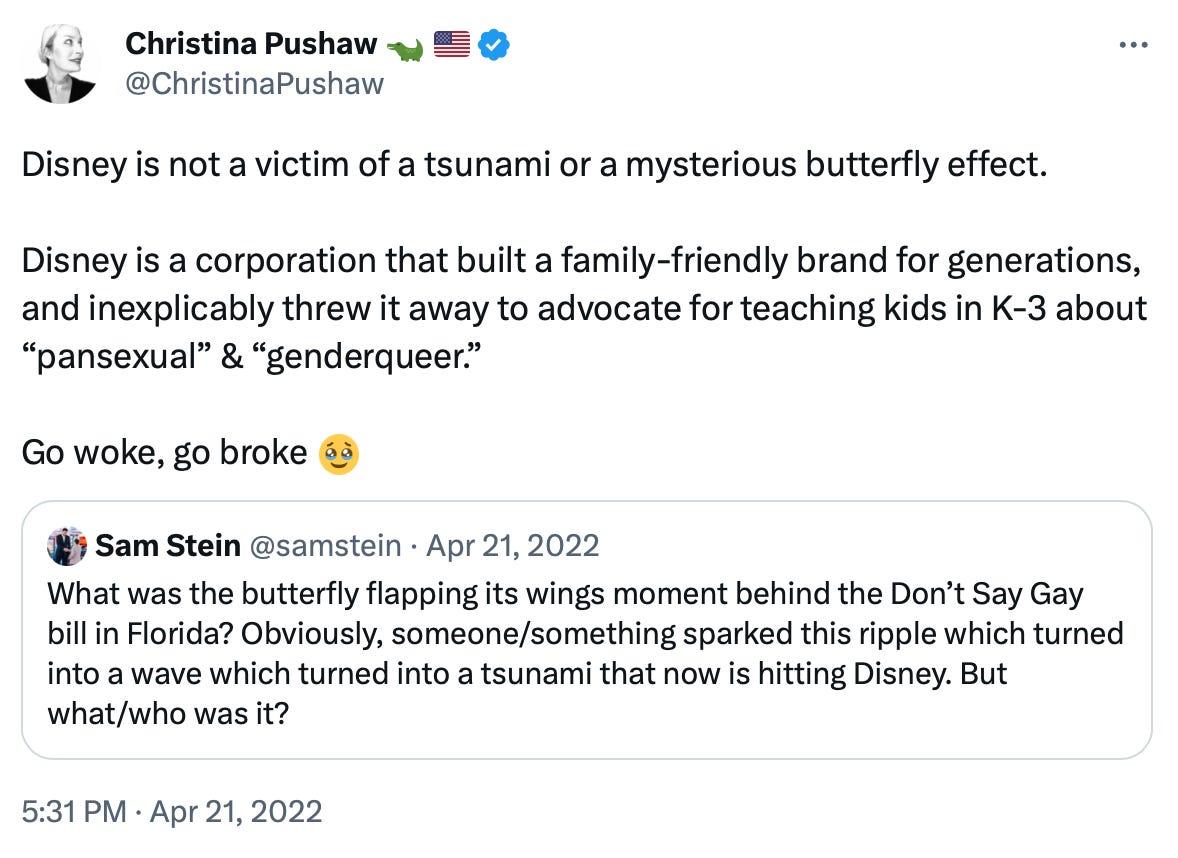
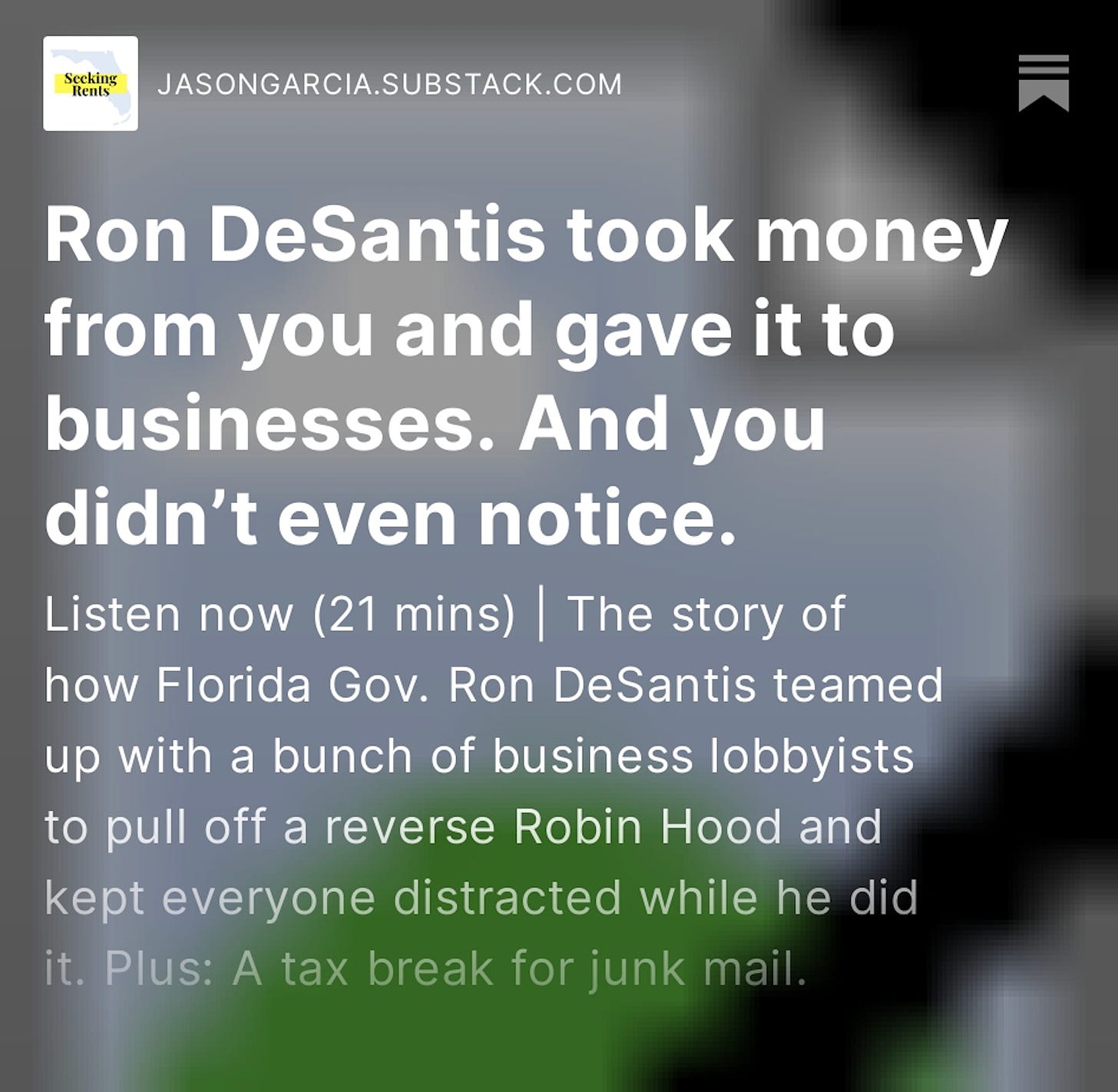
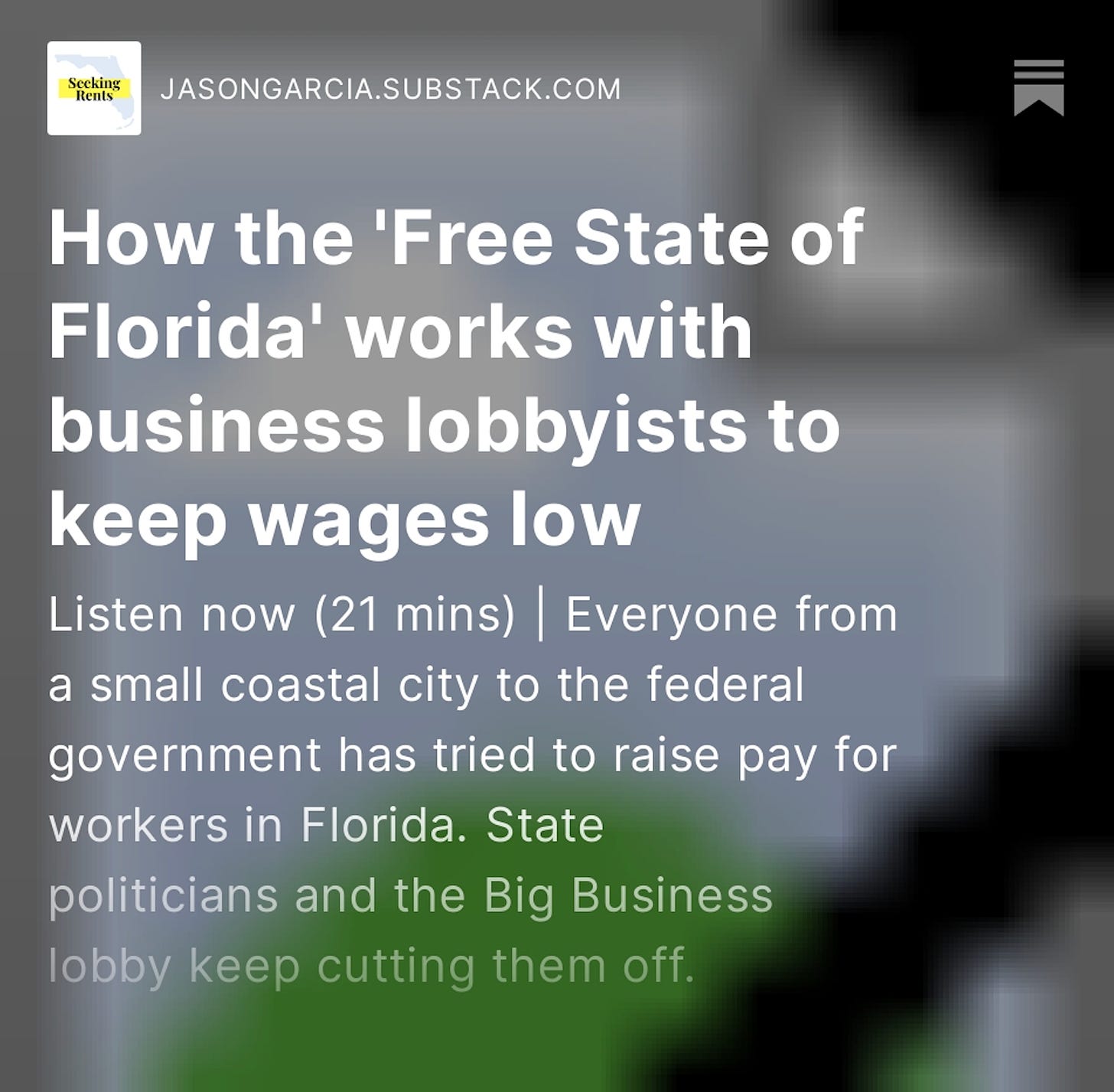
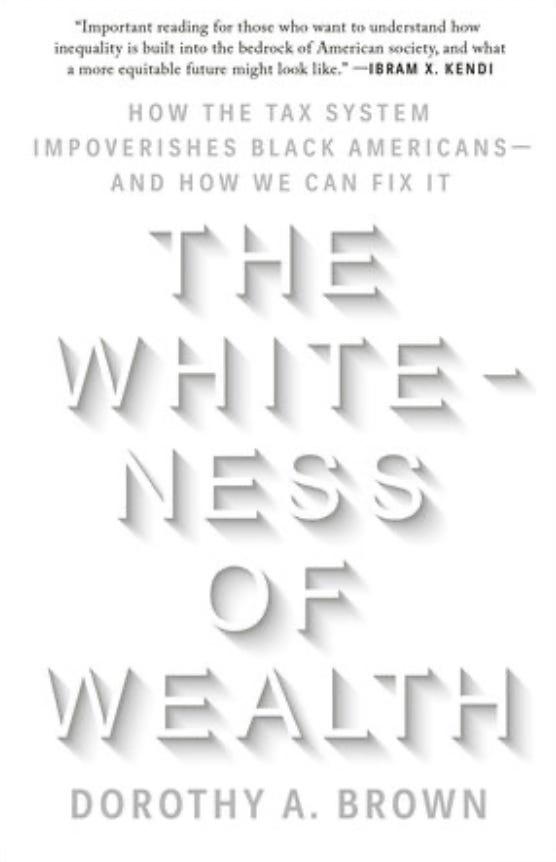

Thank you Jason for your eye opening newsletter. It’s a must read. As a 15 year Floridian who despises DeSatan, and his draconian policies and agenda, the last thing is for he and his agenda to go national. Although, all the former confederate states seem to have the same agenda. Deny history and RE-write it in real-time.
DeSatan wants to make America Florida Again. God help us all. He’s turning Florida into an ignorant, dystopian state run by an authoritarian and fascist governor, and an increasing inept and despicable Legislature.
More people need to be educated on his agenda. Personally, I’d like to know who these billionaire puppet masters are. We know some of the organizations like The Federalist Society which has already managed to put four of its members on Florida’s Supreme Court. Then there’s the usual suspect like ALEC. We also know about Mom’s for Liberty who continually wreak havoc on our school systems and librarians.
I want to know which billionaires are funding these fringe and ludicrous programs and bills, so we can put them, protest their businesses. They need to pay for all the damage they are causing.
Thanks again, great newsletter...:)
It’s galling what desatan has done to Florida. It probably didn’t help to have rick scott preceded him either. White wealth(a redundancy, I know)has led florida voters around by the nose for years yet they keep on voting the boogers in. Go figure.